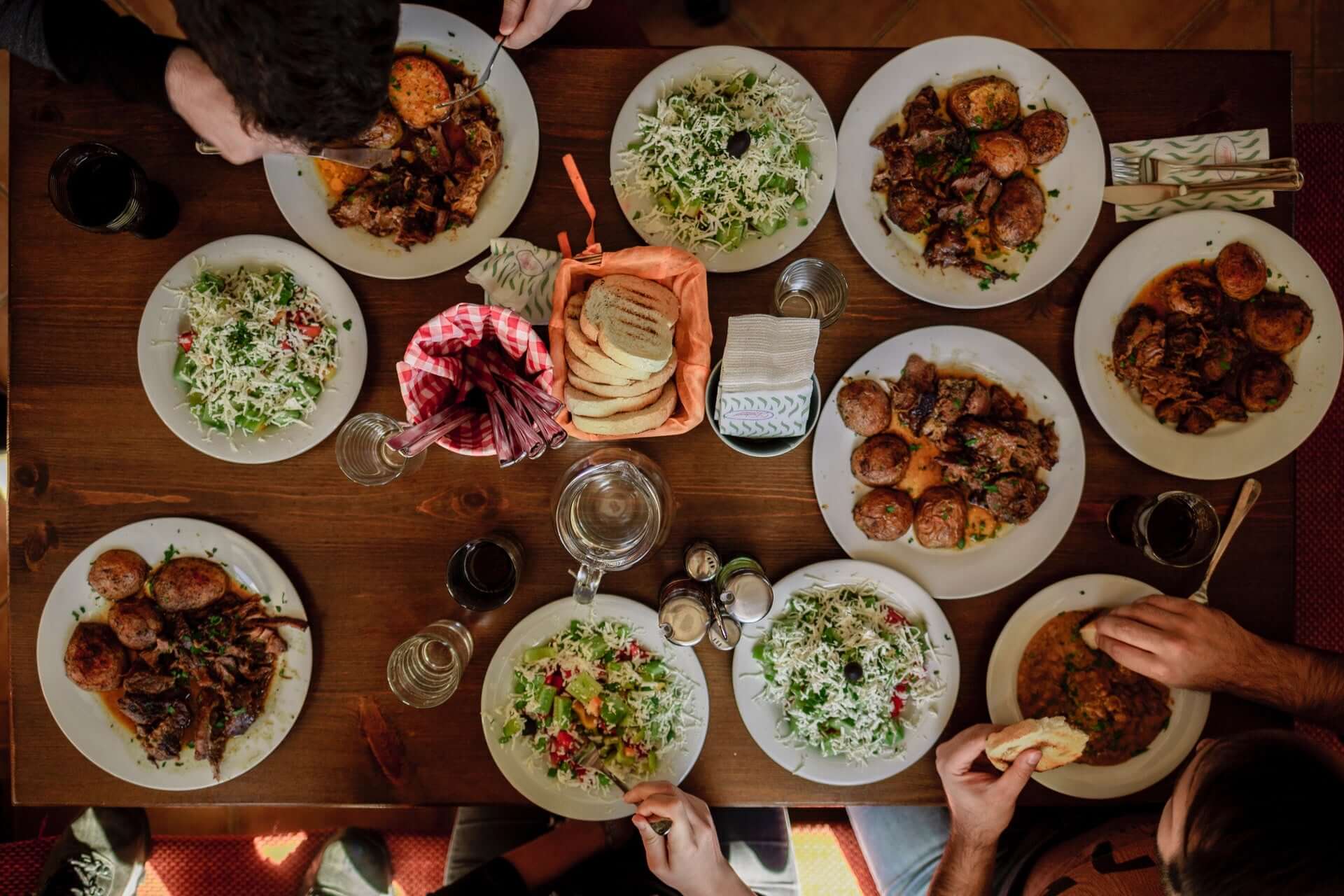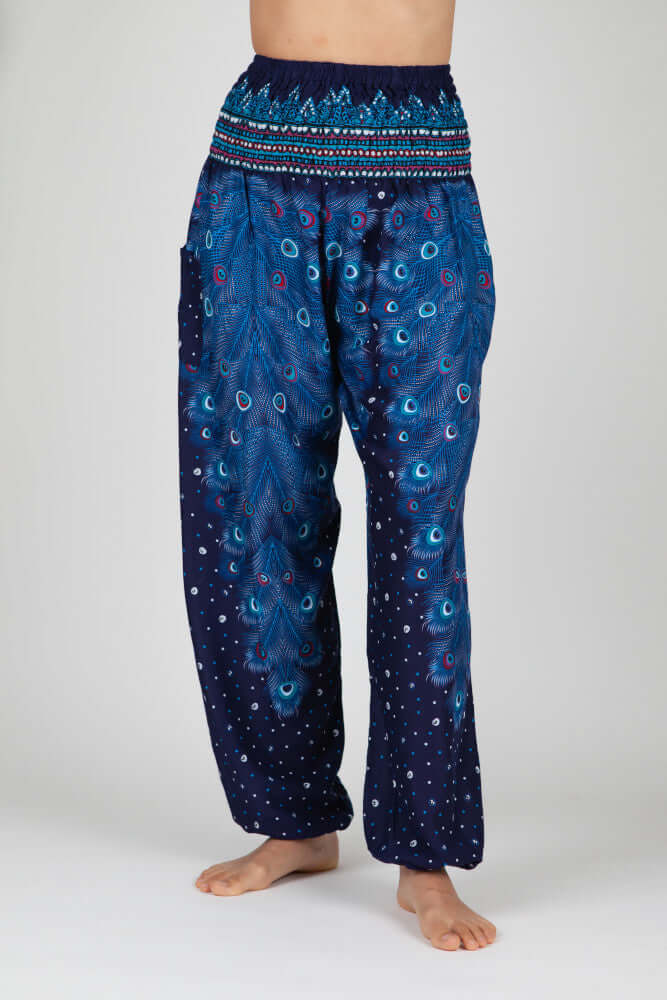
Inhaltsverzeichnis
Gespräche über Veganismus – Warum sie immer eskalieren und was du als Veganer:in dagegen tun kannst
Für dich ist klar, dass du dich vegan ernähren möchtest? Super, dann ist doch alles paletti! … Wäre da nicht das direkte Umfeld mit Menschen, die von deiner rein pflanzlichen Ernährung nichts halten. Immer wieder gerät man aneinander oder driftet sogar voneinander weg – Gespräche und Diskussionen mit konkurrierenden Denkweisen und Lebensstilen können anstrengend sein. Erfahrungen & Tipps.
Vegane Ernährung: Ich habe für mich einen Lebensstil gefunden, mit dem ich mich wohl fühle und bei dem ich weiß, dass ich damit nicht nur Tieren etwas Gutes tue, sondern auch der Umwelt. Es fühlt sich richtig an. In meinem direkten Umfeld sehen das jedoch leider nicht alle so. Und das kann extrem frustrierend sein. Und zwar nicht nur für mich – auch meinem Gegenüber kann diese Konfrontation die Nerven rauben…
Jede Situation ist einzigartig – und doch gleich
Einige entscheiden sich für eine vegane Lebensweise, weil Personen aus dem Freundeskreis oder Familienmitglieder sie dazu inspirieren. Das ist super, denn es bedeutet, dass sich dann bereits Menschen im engen Umfeld befinden, die eine ähnliche Weltanschauung haben, wie man selbst. Hier kann es sein, dass der Einstieg leichter fällt.
Andere wiederum sind selbst die “Initiatoren” in der Freundesgruppe und stehen erst einmal alleine dar. Sie wurden durch den eigenen moralischen Kompass, durch Beiträge in sozialen Netzwerken oder auch durch Dokus auf eine rein pflanzliche Ernährungsweise aufmerksam. Hier auf Zuspruch von geliebten Menschen zu stoßen, ist schwieriger und seltener.
Aber ob du nun einen, fünf oder 10 Menschen in deinem Umfeld hast, die vegan leben bzw. sich vegan ernähren – mit Sicherheit befindet sich genauso mindestens eine Person in deiner direkten Umgebung, die gar nicht gut auf dieses Thema zu sprechen ist.
Was ist das Problem?
Aber wo genau liegt eigentlich das Problem? Wieso ist es so schwierig, mit Nicht-Veganer:innen über das Thema Veganismus zu sprechen? Manchmal habe ich das Gefühl, Veganismus wird fast schon wie Religion oder Politik gehandhabt: Bloß nicht ansprechen, sonst kommt es definitiv zu Reibungen zwischen den Gesprächsbeteiligten.
Auf der anderen Seite gibt es auch gegenteilige Beispiele. Zuletzt wurde ich positiv überrascht von meiner Cousine, die zwar Fleisch isst, aber trotzdem total interessiert an meiner Ernährungsweise war. Total offen und entspannt konnten wir uns über unsere Ansichten austauschen.
Woran liegt es, dass Menschen so unterschiedlich auf dieses Thema reagieren?
Meiner Erfahrung nach ist der größte Knackpunkt die Asymmetrie des Wissensstands beider Parteien.
Lass mich das einmal erklären: Wenn wir nur wenige Informationen zu einem Thema haben, aber eine Debatte oder Diskussion darüber führen (sollen), fühlen wir uns in die Ecke gedrängt. Egal ob es dabei um Veganismus, Politik oder künstliche Intelligenz geht. Denn ohne Wissen fehlt uns eine Argumentationsgrundlage.
Nun ist es eben oft so, dass unser Gegenüber im Gegensatz zu uns kaum etwas über den veganen Lebensstil weiß. Was auch völlig normal ist, denn die Person hat sich in den meisten Fällen einfach noch nicht mit der Thematik auseinandergesetzt. Das “Wissen”, was vorhanden ist, besteht zum Großteil aus Vorurteilen und Stereotypen.
Wir halten fest: In den meisten Fällen herrscht ein Ungleichgewicht bezüglich des Wissensstandes.
Okay, und weiter?
Das Ganze wäre kein so großes Ding, wenn wir einfach zugeben würden, dass wir nicht über ausreichend Wissen verfügen, um über dieses Thema zu debattieren.
Leider ist Scham jedoch ein großes Thema in unserer Gesellschaft. Würden wir unser Defizit so offen darlegen, könnten wir als “schwach”, “dumm”, “peinlich”, oder “unwissend” abgestempelt werden. Und das wollen wir so gut es geht vermeiden. Gerade, wenn es um ein Thema geht, das gerade in aller Munde ist und über das man doch eigentlich Bescheid wissen müsste…
Was also tun wir?
Wir fühlen uns angegriffen. Wir verlassen die rationale Ebene und gehen in die emotionale Ebene über. Hier entscheidet nicht mehr die Güte des Arguments, sondern wie gut ich mich verteidigen kann. Und wie gut ich die Meinung, die ich glaube vertreten zu müssen, durch eigentlich inhaltslose Entgegnungen rüberbringen kann. Dieses Verhalten zeige ich umso stärker, je mehr ich dieses Ungleichgewicht (unterbewusst) wahrnehme.
Die Folge?
Das Gespräch endet in Vorwürfen, im Streit oder zumindest in einer angespannten Stimmung.

Photo by Priscilla Du Preez on Unsplash
Der zweite Punkt: Offenheit, Toleranz und Selbstsicherheit
Einen weiteren Knackpunkt in Bezug darauf, wie das Gespräch verläuft und ausgeht, sehe ich in einigen Facetten der Persönlichkeit.
Um auf das positive Gesprächserlebnis mit meiner Cousine zurückzukommen: Ich weiß, dass sie generell ein Mensch ist, der gegenüber anderen Anschauungen und Einstellungen sehr offen ist. Sie ist aufrichtig interessiert an den Gedanken ihres Gegenübers. Zusätzlich ist sie mit sich im Reinen; sie weiß, wer sie ist und sein will. Gleichzeitig ist sie offen dafür, dazuzulernen.
Solche Eigenschaften verleihen uns selbst ein Gefühl von Stärke in einem Gespräch. Denn wenn mir diese Selbstsicherheit bzw. dieses Selbstbewusstsein fehlt, dann tendiere ich viel eher dazu, das Gespräch auf eine emotionale Ebene zu bringen. Zudem fällt es mir schwerer, zuzugeben, dass ich vielleicht über keine ausreichende Wissensgrundlage verfüge, um über das Thema eine Diskussion zu führen. Womit wir wieder bei Punkt eins wären…
Und da wäre noch was:
Wenn das Thema Veganismus aufkommt – durch welche Situation / Bemerkung / Frage auch immer – herrscht bei nicht Veganer:innen schnell das Gefühl (und das ist gar nicht abwertend gemeint), dass man nun eine grundlegende Diskussion über Veganismus führen müsse, wobei man dann natürlich den eigenen Standpunkt verteidigt. Viel häufiger ist es jedoch so, dass Veganer:innen dieses Thema von sich aus vermeiden, weil sie wissen, wie viel Reibung es erzeugen kann.
Wieso kann man nicht einfach ein Gespräch führen und sich austauschen, nachfragen, erklären? Das geht bei anderen Themen doch auch?
Zum einen denke ich, es liegt daran, dass die eigene Ernährungsweise nun mal ein emotionales Thema ist.
Ob vegan oder nicht. Schließlich macht sie einen großen Teil unseres alltäglichen Lebens aus. Die Erziehung unserer Eltern beeinflusst in den allermeisten Fällen, wie wir uns ernähren. Und das bleibt dann oft auch so. Weil uns die eigene Ernährungsweise schon so lange begleitet, wird sie Teil unserer Identität.
Zum anderen denke ich, dass viele Menschen im Herzen eigentlich wissen, dass ihre omnivore Ernährungsweise Leid verursacht und Tieren und sowie der Umwelt schadet.
Im Kopf entsteht dann eine sogenannte kognitive Dissonanz. Das bedeutet, dass ein Mensch Kognitionen (hier: Gedanken) hat, die unvereinbar sind, z.B.: “Das Töten / die Haltung von Tieren verursacht Leid” vs. “Ich esse tote Tiere”. Diese kognitive Dissonanz äußert sich als unangenehmer Gefühlszustand. Wir wissen quasi, dass etwas nicht stimmt. Wie können wir dieses unangenehme Gefühl loswerden? Entweder ändern wir unser Verhalten (“Ich esse keine Tiere mehr”) oder wir verändern unsere Gedanken (“Tiere zu essen ist ganz normal” / “Den Tieren geht es gar nicht so schlecht” / …).
Was denkst du, ist einfacher umzusetzen?
Richtig, eine Veränderung der Gedanken. Wir können das unangenehme Gefühl verdrängen bzw. auflösen, indem wir Rechtfertigungen für unsere Handlungen finden.
Wenn ich nun also wieder mit diesen widersprüchlichen Kognitionen konfrontiert werde (z.B. wenn das Thema Veganismus angeschnitten wird), dann gehe ich in den Verteidigungsmodus, um mein Selbst und meine Kognitionen zu schützen. Sonst würde die kognitive Dissonanz wieder aufkommen – und das fühlt sich nicht gut an.
Das Gespräch kann leicht eskalieren.
Was kann ich als Veganer:in in solchen herausfordernden Gesprächssituationen tun?
Ich möchte keinesfalls, dass das Gefühl entsteht, unser nicht-veganes Gegenüber wäre das alleinige Problem.
Ganz im Gegenteil. Ich weiß aus eigener Erfahrung, dass auch wir Veganer:innen nicht immer einfache Gesprächspartner:innen darstellen! Besonders am Anfang tendieren wir dazu, andere missionieren zu wollen. Oder versuchen, bei der anderen Person ein schlechtes Gewissen zu evozieren, damit sie merken, wie “böse” das ist, was sie da tun. Es kann durchaus vorkommen, dass die Partei, die sich vegan ernährt, deutlich intoleranter ist als die Partei, die sich omnivor ernährt. Schließlich sind auch wir nicht frei von der Emotionalität des Themas.
Wie also kann ich mich verhalten, damit ein Gespräch oder eine Diskussion möglichst friedlich verläuft?
Empathie
Ich glaube, dass Empathie sehr wichtig ist. Wir sollten uns daran erinnern, dass wir dieses neue Wissen selbst vielleicht erst vor kurzem akquiriert haben. Auch du warst einmal an dem Punkt deines Gegenübers. Habe Verständnis dafür. Gebe deinem Gegenüber nicht das Gefühl, “schlechter” oder weniger Wert zu sein als du. Das ist ganz wichtig. Äußere dein Verständnis für die Position des anderen vielleicht sogar laut. Damit zeigst du Wärme und Empathie.
Geduld
Gebe deinem Gegenüber Zeit. Wirf nicht mit Fakten um dich, wenn du merkst, dass die andere Person nicht bereit dazu ist, diese aufzunehmen. Das kann überfordernd sein und einen in eine Position bringen, in der man glaubt, sich verteidigen zu müssen (siehe “Wissensstand-Asymmetrie” oben).
Mit positivem Beispiel voran
Höre auf, zu missionieren. Aufklärung ist wichtig. Doch die geschieht effektiv nur dann, wenn die andere Person sich als gleichwertige:r Gesprächspartner:in wahrnimmt. Anstatt das Gespräch also bei jeder Gelegenheit auf Veganismus zu lenken, versuche einfach, mit positivem Beispiel voranzugehen. Lebe dein Leben, mache hier und da subtil auf etwas aufmerksam. Wenn du zum Beispiel zum Essen eingeladen bist, dann bringe einen leckeren veganen Nachtisch mit (der alle überzeugen wird, dass vegane Kost durchaus schmecken kann 😉), oder schlage Alternativen vor, mit denen du dich wohler fühlen würdest – und zwar nicht, damit alle anderen “zwangsweise” auch vegan essen, sondern mit der Begründung, dass du dich damit wohler fühlen würdest.
Wir alle werden von unserem Umfeld beeinflusst – ob wir wollen oder nicht. Wieso nicht also dein Umfeld positiv beeinflussen? Und zwar ohne Streitgespräche oder Diskussionen, die darin enden, dass mindestens eine Person wütend oder niedergeschlagen ist? Sondern indem du mit Empathie, Verständnis und Geduld vorangehst? Ich kann dir garantieren, dass sich das auch positiv auf die Einstellung deines Gegenübers auswirken wird!
Spread love, not hate. 💛🌱
Wenn du noch mehr über gesunde Ernährung, Achtsamkeit, Nachhaltigkeit oder Familie und Schwangerschaft erfahren möchtest, schaue dir hier noch mehr spannende Blog-Artikel zu diesen Themen an.




























2 Comments
Danke für diesen klugen, warmherzigen Beitrag ❤️.
Ich kann als langjährige Veganerin die Beobachtungen, Schlussfolgerungen und Handlungsvorschläge zu 100% bestätigen.
Leckeres veganes Essen zu Familienfeiern, Partys und für das Kollegenmeeting mitzubringen und es garnicht an die große Glocke zu hängen, dass das köstliche Rezept rein pflanzlich ist, aber auf Nachfrage gerne davon zu berichten- das hat sich als die beste und friedlichste Methode für mich bewährt. 😃
Interessant finde ich, immer öfter zu erleben, dass sich omnivore Esser beginnen zu entschuldigen und ihre Ernährungsweise zu verteidigen, wenn sie mitbekommen dass ich vegan lebe – obwohl ich es in keiner Weise anspreche, geschweige denn kritisiere.
Das Bewusstsein wächst und ich freue mich über jedes gute Gespräch.
„Artgerecht ist nur die Freiheit.“
Felizia
Hallo liebe Luise,
vielen Dank für deinen großartigen Artikel. Der gefällt mir sehr gut und hat bei mir zu einem AHA Erlebnis geführt. Er hilft mir sehr mir noch bewusster zu werden.
Liebe Grüße
Laura
Laura
Leave a comment
This site is protected by hCaptcha and the hCaptcha Privacy Policy and Terms of Service apply.